« May 2010 | Main | July 2010 »
June 30, 2010
IDN Interview 90: Better Global Commercial Arbitration.
Ways to make arbitration finally make sense. The podcast interview is here. GE's Mike McIlwrath interviews Pepperdine Law School's Tom Stipanowich on protocols to improve commercial arbitration. And see Stipanowich's article "Arbitration: The New Litigation" (2010 U. Ill. L. Rev. 1).

McIlwrath: Toward sane global ADR.
Posted by Holden Oliver (Kitzbühel Desk) at 08:07 PM | Comments (0)
The post-Soviet Russia spy novel: Eric O'Neill on "The Ten"
Good morning, American workers. George Stephanopoulos interviews O'Neill on yesterday's Good Morning America.
Posted by JD Hull at 12:34 PM | Comments (1)
June 27, 2010
The $10 Million Business-to-Business Contract: 1 or 3 Arbitrators?
So what's the answer for the "small" ones? How many arbitrators do you need to hear and decide a business-to-business cross-border dispute (moderate value and difficulty)? Assume it will be heard in Western Europe or the U.S.
One arbitrator or three?
What do most parties generally prefer? Why do they lean that way? And, even while litigants widely believe that one arbitrator can both cut costs and increase speed, what is the best "default" practice in the abstract?
Should "size"--the overall monetary value of the dispute--always drive the parties' decision of the number of arbitrators used?

Two months ago GE's Mike McIlwrath interviewed Jennifer Kirby, now with Herbert Smith LLP - Paris
Finally, are company executives--those who after all pay the salaries and fees of in-house counsel and outside law firms--likely to see this issue differently than the lawyers they employ?
Set aside 15 minutes and hear interview No. 88 in the CPR Institute's International Dispute Negotiation series. In April, Italy-based Mike McIlwrath, an in-house lawyer with GE Oil & Gas, interviewed Jennifer Kirby, a Paris partner of London's Herbert Smith.
Between 2002 and 2005, Kirby served as Counsel and eventually Deputy Secretary General of the ICC's Court of International Arbitration in Paris, where she supervised or formally evaluated countless cross-border arbitrations, involving parties and professionals from over 100 jurisdictions. The ICC court has been receiving and managing private commercial disputes to final awards since 1923.
Posted by Holden Oliver (Kitzbühel Desk) at 12:59 AM | Comments (0)
June 26, 2010
Saturday's Ruthie: The Get-Real New Age.
From a friend of ours in Cambridgeshire. "Introspection will be the watchword of the next decade...people have no money to go out and there is a dawning realisation that our current western lifestyle is unsustainable in the long term. Greed and instant gratification is finally out of fashion. Put your money into new spirituality."
Posted by JD Hull at 11:27 PM | Comments (2)
June 25, 2010
Happy weekend, Teacups.
Bang bang. Any warriors out there? Ambition? Heart? Gospel?
"Who's the hunter, who's the game?" Half the people you meet live from one day to the next in a state of such fear and uncertainty that about half the time they doubt their own sanity. Their boats are rocking so badly that all they want to do is get level long enough to think straight and avoid the next nightmare. --HST, Fear and Loathing: On the Campaign Trail '72
Posted by Holden Oliver (Kitzbühel Desk) at 11:59 PM | Comments (0)
Get off your knees. Lead.
Stop whimpering, groveling, and apologetically asking employees to do their jobs.
Make yours moxie. It's your business, and your rules. Get off your knees. Demand things first of yourself--and then of others. (1) What are you doing this week at your firm? (2) What are your employees doing for you and your partners this week? (3) What did you all do together for customers, buyers and clients?
It's time for lawyers and other service providers to lead. At your shop, refuse to be a slave to lawyer-centric and employees-first popular cultures. Stop whimpering, groveling, and apologetically asking employees to do their jobs. Don't bargain with them. Show them. Lead.
Put customers, buyers and clients first. Let go of the notion that you and other lawyers--your partners, your adversaries, and your competitors--are special and in a special club. You are not special. Clients are special. Make customers, buyers and clients your club. Clients still wait for us to evolve into their trusted partners and advisors. And to lead.
Follow me, stereo jungle child
Love is the kill...your heart's still wild. --P. Smyth
Posted by JD Hull at 11:21 PM | Comments (0)
Congress: New financial rules would cover Wall Street to Main Street.
AP: New Financial Reform Package is Comprehensive:
WASHINGTON - President Barack Obama declared victory Friday after congressional negotiators reached a dawn agreement on a sweeping overhaul of rules overseeing Wall Street.
Lawmakers shook hands on the compromise legislation at 5:39 a.m. after Obama administration officials helped broker a deal that cracked the last impediment to the bill -- a proposal to force banks to spin off their lucrative derivatives trading business. The legislation touches on an exhaustive range of financial transactions, from a debit card swipe at a supermarket to the most complex securities deals cut in downtown Manhattan.
Posted by Holden Oliver (Kitzbühel Desk) at 01:22 PM | Comments (0)
June 23, 2010
Another reason to only interview workers age 40 and over.
The Lawyerist asks "Are Unpaid Interns and Law Clerks Illegal?" Rather than sweating this issue, or doing any related non-billable research, we suggest that your firm spend a few hours researching and writing a comprehensive white paper on a possible movement to restore ordeal by water to the trial courts.

Posted by Holden Oliver (Kitzbühel Desk) at 11:59 PM | Comments (0)
June 22, 2010
Tan, rested, back in the saddle: Will Bob Bork ride Elena Kagan?
Call it a reckoning. See yesterday's Washington Post and this Salon piece: "The Borking of Elena Kagan". Both report that Robert Bork will publicly oppose Elena Kagan's nomination to the Supreme Court. While Bork, now 83, may or may not have been a morally pretentious weenie, he is mega-talented, a fine legal thinker, and likely would have made a fine Supreme Court justice. In any event, Bork would have been a marked improvement over Clarence Thomas as a touchstone for the right on the most elite court in Western history. Most lawyers of any political persuasion now admit that. "Borking" Bork in 1987 was not one of our finest moments--and yet we continue to insist on over-playing partisan politics with fine judges and solid lawyers in the nomination process. Not one of the better modern traditions of Congress. So let's Not Be Borking anymore--starting with Elena Kagan. Finally, another issue, and it's cultural, at least for this blog. With John Paul Stevens gone, who will wear bow ties?
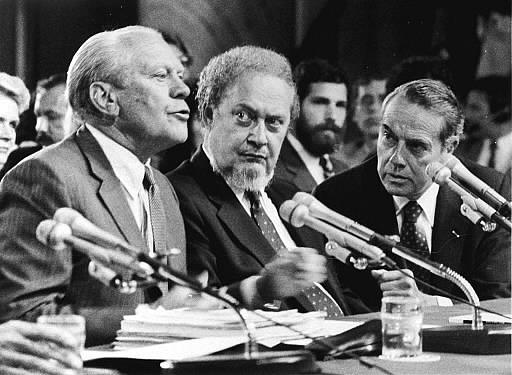
1987: Bork gets a plug from a former president and the undersigned's ex-Congressman in Grand Rapids, Michigan.
Posted by JD Hull at 06:56 PM | Comments (2)
June 20, 2010
Real Brit execs race powerboats.
Man of Kent screws pooch on yacht. “He is having some rare private time with his son”. This morning the New York Times and several thousand other media outlets want to know what Tony Hayward was doing yesterday in a yacht race off England's clear southern blue coast. So do we. More to the point, in a world-wide recession, yachts are out anyway, Tony. Get down with us, bubba.
The Greaseman
Posted by Holden Oliver (Kitzbühel Desk) at 11:59 PM | Comments (0)
June 18, 2010
Mother Jones: The Oval Office oil spill speech was...
First, our humble 2 cents. Prayer is a good thing, Mr. President, but is it a plan? That said, we defer to the smart and fearless pros at the enduring Mother Jones, and to Mojo's writer Kevin Drum, who watched the whole thing on Tuesday night. See "Obama's Oil Spill Speech: Running On Empty".
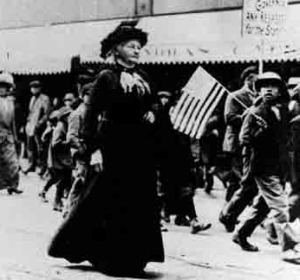
Posted by JD Hull at 12:29 AM | Comments (0)
June 14, 2010
Redux: "An aggregation of narrow views". Curse of the modern law firm?
Years ago, I was a partner in a D.C. branch office with about 40 other partners firm-wide and several offices in the East and Midwest. This financially successful and very able law firm was my home for 12 years. I was fortunate through some good mentors--which I hustled to get--to have an interesting corporate practice in federal courts litigation, energy and environmental law. However, I was amazed to watch over the years how narrow (i.e., insular) a lot of the firm's brightest stars became in their practices--and how that insularity seemed to be carried from one associate class to the next.
In short, our "specialty culture" and "largeness" had worked against us. We weren't building broad-gauged lawyers anymore. Partners who had been friends for decades rarely knew how to explain (much less cross-sell) what other partners did. Worst of all, the art and ethos of seeing lots of different multi-disciplinary issues while working for a client was no longer valued. The result: (1) highly-talented but narrow and "non-collaborating" specialty fiefdoms with rare overlaps; (2) less value and lower efficiencies for clients.
Below is a November 11, 2008 post--not our normal re-run--based on the wisdom of two fine lawyer-writers. A very belated thank you to Rees Morrison and Carolyn Elefant; people in my firm think about this idea and these phrases of yours every day as we try to build a law firm with lawyers who are specialized--but also have big-picture sensibilities for large corporate clients.

"Boom. Morrison nails it. Elefant names it." (Photo: HBO)
"An Aggregation of Narrow Views": Curse of the Larger Law Firm?
By "broad-gauged" lawyers, I mean law firm leaders and facilitators who, in addition to their own specialties, have an "expansive frame of reference" about the world, business, other practice areas, and how they all fit together.
Thanks to Carolyn Elefant at Legal Blog Watch, and the alert eye of the mysterious Ed. of Blawg Review, I read Rees Morrison's comprehensive and perceptive piece in the New York Law Journal about what larger law firms can and cannot do for clients. It's called "Why Law Departments Should Beware Super-Sized Firms". Despite its title (apparently given by ALM editors to get our attentions), Morrison's article is thoughtful, fair and generally flattering to large law firm (1000 plus lawyers) cultures. On size, we're talking about total headcounts here, not gross revenues or profits per partner. There are about 30 in the world this size (1000 or more)--all out of the UK and the US--and at that size they are a relatively new phenom.
My take, and orientation: I "like"--and have always liked--"larger firms" more than I like smaller ones, even though I am a shareholder in an aggressive and varied boutique that works all over the U.S. and abroad in some unique ways. I am a product of one, and in my own firm prefer senior lawyers who made partners in one as my colleagues, and associates who can work at one (but have advisedly chosen not to) as associates.
In fact, I strongly prefer "larger" firms--Morrison uses 1000 lawyers as a number, but let's use 500 or more lawyers here--even while many larger firms don't get, and will never get, the client service cultures they will need to survive. But I do like their energy, combativeness, spirit and moxie, when those features are present. If I don't know where to go, I go there; a functional larger firm with good leadership and management is a wonderful library of humans you just don't get everywhere. And seven or eight ideas or viewpoints is always better than one or two.
(By the way, small and medium-sized firms often make noises that their size somehow naturally ensures a greater "client service" focus in their performance. Well, this is a huge, if entertaining, crock. Smaller firms as a group are way less CS-savvy than larger firms because, unlike their bigger brethren, they have never really thought about, studied, implemented or "enforced" CS regimes at their shops. Reasons: many smaller and medium-size firms make money and survive in spite of themselves; think they already "know" about CS; or think they don't really need to know about CS.)
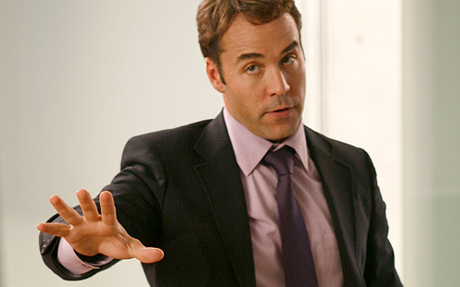
"I want Quarterbacks--not dweebs. Value--not size. Send me workaholics with brains and perspective who don't all dress like goddamn FBI agents." (Photo: HBO)
Moreover, I buy into three different notions about larger firms. First, more aggressive and competitive lawyers, and some very fine law students, are attracted to larger firms. Second, to the extent those firms represent corporate clients--and most of them do--the work is often way more interesting, complex and challenging than you will find at smaller firms. Third, larger firms do try to hire, and pay for, promising young lawyers, even if their younger talent is unproductive and a drain in the first few years. So, as a general rule, if you are that rare GC who doesn't know the terrain yet, and have no idea where else to turn, by all means go to a big firm first. I can name seven or eight good ones between 500 and 3000 lawyers and professionals in five or six key practice areas that my firm, and other boutiques, conduct as well. Why not? The talent is there. It's still a good bet.
The Hitch: That talent. It's there somewhere--not throughout, and not in all areas--and you do have to find it.
On talent, both abroad and in the U.S., large law firms currently are a double-edged sword. They do have, and always will have talent; however, in recent years, they've diluted the gene pool on lateral hires in order to get bigger. So Ferraris, Jaguars, Chevy Aveos, pick-up trucks and rickshaws all run together on the same track. And large firm offices in smaller cities abroad can be spotty, mediocre and even scary. (Do you really want "Borat" as your company's lawyer in, say, Eastern Europe?--because that is what you might get.)
Many, if not a majority, of the partner-level lawyers my firm has seen in cases and transactions over the past ten years from "name" law firms have been disturbingly mediocre, and are often malpractice threats to their own firms. Morrison, who is one of the few writers to even mention this, calls it "global coverage, but inconsistent quality and coordination". I think of it as the "Borat syndrome"--and in larger firms you see it both in the U.S. and abroad.
Further, and as Morrison points out, there are in larger firms troublesome inflationary pressures on hours billed. Value questions. Forget about what the markets will bear; on a good day, first and second year associates are worth about -$50.00/hour, once you factor in what it takes to teach, guide and monitor them, and "remediate" their work.
"An aggregation of narrow views." The biggest problem, however, and one I don't see a solution to any time soon, is what Morrison calls "deep specialization, but narrower perspective". Oddly, in the last year I have heard two in-house counsel mention this themselves about mega-firms: they are seeing few "broad-gauged" lawyers. By this, I mean leaders and facilitators who, in addition to their own specialty, have an expansive frame of reference about the world, business, other practice areas, and how they all fit together.
As Ari Gold would say, "Boom!" Morrison has nailed the biggest substantive large law firm problem. In her summary of Morrison article at LBW, wordsmith and D.C. lawyer Carolyn Elefant describes it the lack of "the ability to offer a broad perspective--only an aggregation of narrow views."
Bravo, Morrison, and Elefant.
Posted by JD Hull at 03:02 AM | Comments (0)
June 11, 2010
Overheard in San Francisco: The Man With No Enemies.
At the Clift on Geary Street, in the famous Redwood Room, three people are going over candidates for a high salary lateral hire to join their business.
The Boss, in his sixties, listens for a long while to a glowing report about one candidate, and then says about that candidate in a short monologue:
He's a person with no enemies in the industry?! Really? None?
Sorry, but that's not very good news. "No enemies" means we can trust him with small things, and he'll be loyal. But we can never give him anything risky or important to do. He seeks only to please. More I think about it, I don't want to even meet him.
So, who else do you have?

"Beware of the lily white."
Posted by Holden Oliver (Kitzbühel Desk) at 11:59 PM | Comments (0)
June 07, 2010
Fellow Alpha know-it-alls: Get Lamb's book on Value Pricing.
And read it. "Alternative Fee Arrangements: Value Fees and the Changing Legal Market". See here and here. At this blog we still embrace the billable hour as the main event--but we do abhor "contempt prior to investigation". And we have been wrong about many things. So buy Pat's book especially if, like us, you are skeptical or largely ignorant about how it all works.
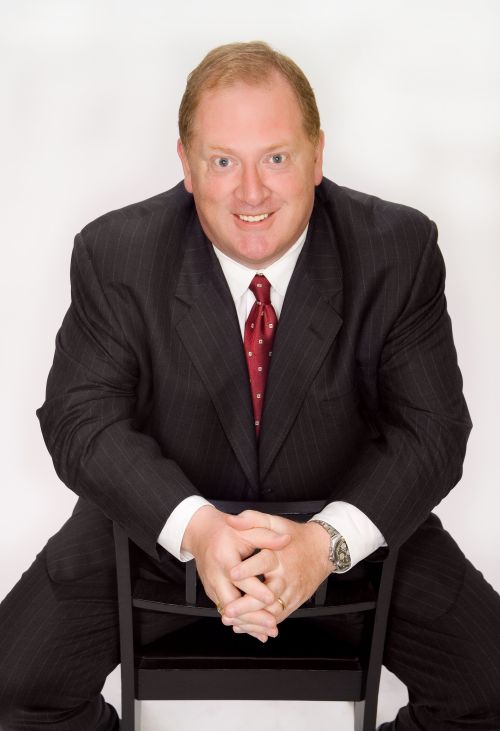
Posted by JD Hull at 11:57 PM | Comments (5)
Holden Oliver: Turning Dem we really think so.
Buy Killdozer. Dump BP stock. Lose the Law Thing. Fight the Power.
Above all: be a man/woman (you cannot be both), think your own thoughts, stand up for something or somebody, ya' big wimps.
Posted by Holden Oliver (Kitzbühel Desk) at 12:00 AM | Comments (0)
June 05, 2010
Change, and its basics: Nova ex veteris
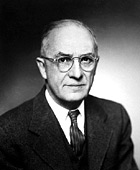
W.C. Williams (1883-1963)
But the trick in mid-2010 is to think new but fast. Change in human thinking likely occurs in the extraordinary moments of the most ordinary, the most "dumbed down", and the least enlightened times--but only if you add some painful "stressors". We've got all those.
And regarding ordinary and dumbed down. My travels have convinced me of this: despite the love and light that struggle to shine through in every human being I meet, we a truly "devo". Five hundred years from now, we will be referred to as living in the Age of Human Spam. We hide, rationalize and cower. We are desperate to conform the lowest and most common form of activity. We have not learned anything from our old men or from history. We have no genuine class--we don't even want it. Very few of our children are "special"; most of them are educational failures, sloths and cultural retards. The self-esteem thing backfired. The best these kids will contribute is a masterful command of Cliff Notes.
If T.S. Eliot were alive today, chances are good that a misanthropic stroke, heart attack or other breakdown would have prevented his completion of "The Hollow Men". We not only love mediocrity, we compete on it, and for it. On standards alone, Eliot would have flipped out on this planet right now.
So much for sweetness, light and puppies from me today. But June 5, 2010 certainly qualifies as our extraordinary moment in this the most dumbed down of all human times. That's wonderful. An opportunity. This Saturday morning, three problems with "no end in sight"--nearly everyone (including elites) with less money, global political tensions, and the Gulf oil spill (day 47) with no end in sight and too close for anyone's comfort--might amount to the right formula.
This is the way the world begins. My fellow suits call it a new paradigm. Poets have called it lots of mysterious--if less goofy and annoying--things. William Carlos Williams called it a New Mind, and Dr. Williams thought of it as "the cure". He wrote that
unless there is
a new mind there cannot be a new
line, the old will go on
repeating itself with recurring
deadliness:without invention
nothing lies under the witch-hazel
bush...
(By the word "invention" Williams did not mean a better mouse trap or a new widget.)
So what do you do? You pick the New Mind you want everyone else to have--and get to work. Chances are your peers are thinking the same thing.
We say whip it.
Posted by JD Hull at 11:59 PM | Comments (0)
To Ray Ward: We're not worthy--but thanks.
We "don't care what the neighbors say". We never will. We do get compliments--but rarely from people who, like you, put both sentences and Western culture together in cogent ways.
And to be mentioned along with Peter Friedman, who we also admire. We be duck walkin'. Thanks, sir.
Posted by JD Hull at 11:01 PM | Comments (1)
June 04, 2010
Hull McGuire's first print ad in 1998
Misty water-colored memories. In early 1998--after 5 years in business, armed with some extra cash, to experiment, and because "why not?"--the still-new 'muscle boutique' of Hull McGuire PC ran its first print ad in three East Coast newspapers for eight weeks.
Yesterday Dan Hull told me (though the ad he wrote was "way too windy") that in the second week one CFO from a now storied start-up excitedly called the firm's Pittsburgh office from an airport just to congratulate the firm.
For 12 years ago, the ad was, certainly, prescient. The text:
"IS THIS A GREAT TIME TO CHANGE LAW FIRMS, OR WHAT?"
Doing business has changed. But many law firms haven't.
They still charge for "services" and overhead no corporate client should have to absorb. Like associate lawyer training. Duplicative conferences. And senior lawyers who will never understand or care about your business.
The product is disappointing. Service and follow-up are only words. The monthly bill makes you nuts.
Stop being the equipment in games lawyers play. At Hull McGuire, we focus on clients, and solving their problems. We build lifetime relationships with businesses of all sizes.
IT'S TIME, ISN'T IT?
HULL MCGUIRE PC
Washington DC Pittsburgh San DiegoCorporate Planning, Transactions, Tax. Intellectual Property, Telecommunications. Litigation, Employment Practices, Environmental. Legislative, International.

GCs: Don't be compromised by generic law shops. (not in 1998 ad)
Posted by Holden Oliver (Kitzbühel Desk) at 01:26 PM | Comments (1)
June 03, 2010
The BP Spill: Jann Wenner gets passionate, real, smart.
We don't have the link--but do read in this month's Rolling Stone magazine (RS 1106) Wenner's compelling editorial and call-to-arms on the Gulf spill in "Please, Mr. President". Everyone likes this one. If you don't know who Wenner is, don't read this blog. It's too late for you.
Posted by JD Hull at 11:57 AM | Comments (0)
Akron: We Are Devo.
Editor's note: This week Holden does time in northern Ohio. Dude, it's not so bad. Ever been to Ada? A corn-fed girl works hard, tells the truth. She can hurl an over-sized fridge 50 feet.
Posted by Holden Oliver (Kitzbühel Desk) at 12:17 AM | Comments (2)